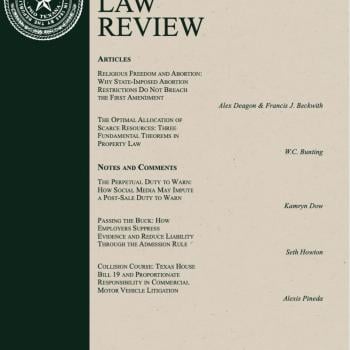The story of the classroom skit described at the beginning of Kathryn Soper's essay functions as a troubling emblem of the nature of Mormon discourse about feminism. Of course, Soper is here telescoping the anecdote to make a point, and the real classroom discussion was undoubtedly more nuanced. Nonetheless, the feminism(s) articulated in the introduction to the article and in the online conversation reported throughout could not be mistaken for articulations of feminist theory and practice in the real world (or even the ivory tower!). And while one can't fault Soper's attempt to cover as broad a swath of Mormon women's thinking as possible, her wide-ranging description of the current state of the discussion among Mormon women makes it clear how much work must yet be done to find a Mormon voice that can meaningfully participate in feminist conversations.
The way that we talk about feminism matters. It's true that most of the language available is overburdened with meaning, but that only makes it more important to speak precisely. The framing of the argument is, perhaps more in this discussion than most, itself an argument. By not doing the work of respectfully attending to the internal logic and subtleties of feminist thought before retreating to the content-free description of feminism as "a conversation" among inadjudicable interlocutors, Soper's framing actively colludes in emptying the word "feminism" of its useful (if complicated) content. "Feminism" can then function as "the f-word," a repository for every possible threat to a reified and brittle ideal of femininity -- "bra-burning," "man-basher[s]," "selfish mothers," "feminazis," "the embarrassments of feminism."
The problem is that these are not the embarrassments of feminism, but distortions deliberately created to embarrass feminists. Likewise, characterizing feminist ideas as alien to Mormonism or Christianity is an argument, not a neutral description of feminism. By proceeding as though this argument has already been made, we cede the only ground on which a recognizably Mormon feminism could be constructed.
Soper's suggestion of the reasons Mormons might be uncomfortable with feminism is one example of this sort of embedded argument and presumed conclusion:
[T]he fruits of feminism -- especially contemporary feminism -- are a mixed basket at best. We may see more ill than good in the current trending away from traditional gender roles and family structures. We may agree in a general sense that women's voices should be heard, yet find feminist voices threatening to our values as individuals and as Mormons. Even ardent feminists among us can't deny that a feminist utopia -- meaning the gender-blind society idealized by liberal feminists, or the gynocentric society idealized by radicals -- is a far cry from Zion, despite the shared emphasis on equality.
But what about that noted liberal feminist, the Apostle Paul? "There is neither Jew nor Greek, there is neither bond nor free, there is neither male nor female: for ye are all one in Christ Jesus" (Gal. 3:28). Or the threat to traditional family structures posed by Jesus? "For I am come to set a man at variance against his father, and the daughter against her mother, and the daughter in law against her mother in law. And a man's foes shall be they of his own household" (Mt. 10:35-36). Or the gynocentric community formed by Ruth's faithfulness to Naomi's god?
Nineteenth-century Mormon women developed a body of thought informed by the first wave of American feminism, but ultimately quite independent of it, and quite distinct from it. They claimed suffrage, but upheld patriarchy (and polygamy!); they did not seek to emancipate Eve, but to celebrate her redemption; they wrote suffrage songs, and set them to the tunes of their beloved Mormon hymns. It seems to me that 21st-century Mormon women must undertake a similar project. It will take earnest work to become informed about the theological issues at stake, and to articulate them in a way that makes sense to Mormon women with widely varied political and ideological commitments, and then to stay engaged in the conversation which will inevitably be painful.
It will be lonely work for self-identified Mormon feminists, who will find themselves in a no-woman's land between their Mormon sisters who readily identify with the American political right and their feminist sisters who regard patriarchal religion with hostility. But the alternative to this work is stagnation in the shallow pool of recycled American feminist and anti-feminist political discourse. Not articulating a theologically-informed feminism leaves Mormon women with two options: arguing unproductively over the contours of women's participation in the history of the church and what such an impossibly-fraught historiography might tell us about contemporary practice, or arguing unproductively about whether (or to what degree) a politically-informed and/or activist feminism is in tension with Mormonism.




